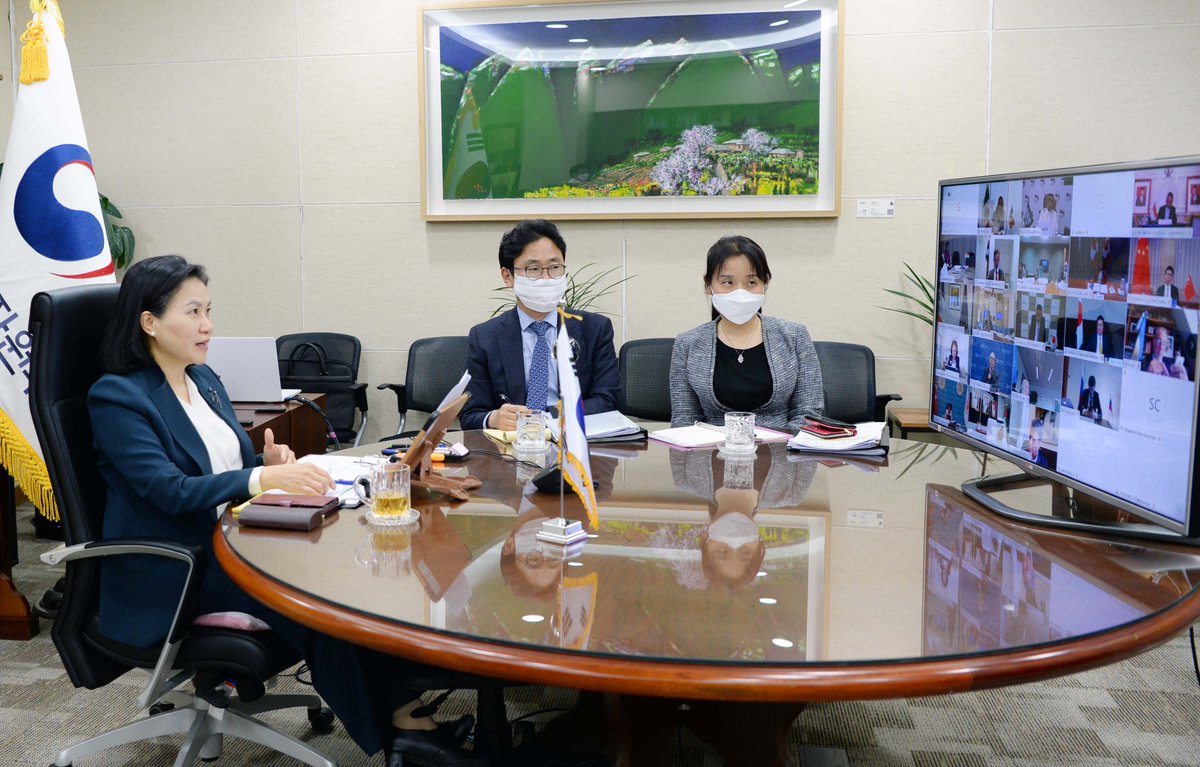S. Korea, China to discuss expanding scope of FTA
Todas las versiones de este artículo: [English] [français]
Yonhap | 26 May 2020
S. Korea, China to discuss expanding scope of FTA
By Kang Yoon-seung
SEOUL, May 26 (Yonhap) — South Korea said Tuesday it will hold the seventh round of talks with China this week to discuss expanding the scope of their bilateral free trade agreement (FTA) to better cover the service and investment sectors.
The two countries will begin a four-day virtual meeting Tuesday to "speed up" the progress amid the new coronavirus pandemic that has virtually frozen global travel and economic activities, according to the Ministry of Trade, Industry and Energy.
The previous meeting was held in Beijing in November last year. Seoul and Beijing implemented the FTA in December 2015 to lower tariffs on goods.
"South Korea will help local firms penetrate deeper into the Chinese market and make efforts to better protect their investments," a ministry official said.
China is the biggest trading partner of Asia’s No. 4 economy, although the country’s outbound shipments to China sank 16 percent on-year to US$136 billion in 2019 amid the falling price of chips.
South Korea has been making efforts to expand ties with China through other trade deals as well.
Seoul is currently under talks with Beijing and Tokyo to clinch a trilateral FTA, although the latest COVID-19 pandemic has delayed any progress. Their first official negotiations for the regional economic deal started in 2013.
In a separate move, the Association of Southeast Asian Nations and its dialogue partners — South Korea, China, Japan, Australia and New Zealand — are moving to finalize a mega Asia-Pacific trade pact, known as the Regional Comprehensive Economic Partnership (RCEP) this year.
The RCEP, the biggest trade deal ever signed by South Korea, is expected to help Asia’s No. 4 economy diversify its export portfolio amid growing protectionism around the globe sparked by the Sino-American trade row.






